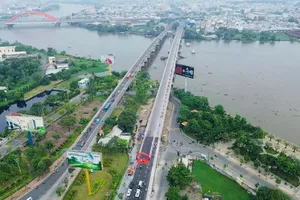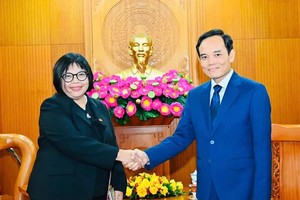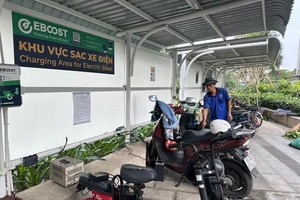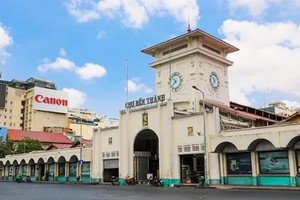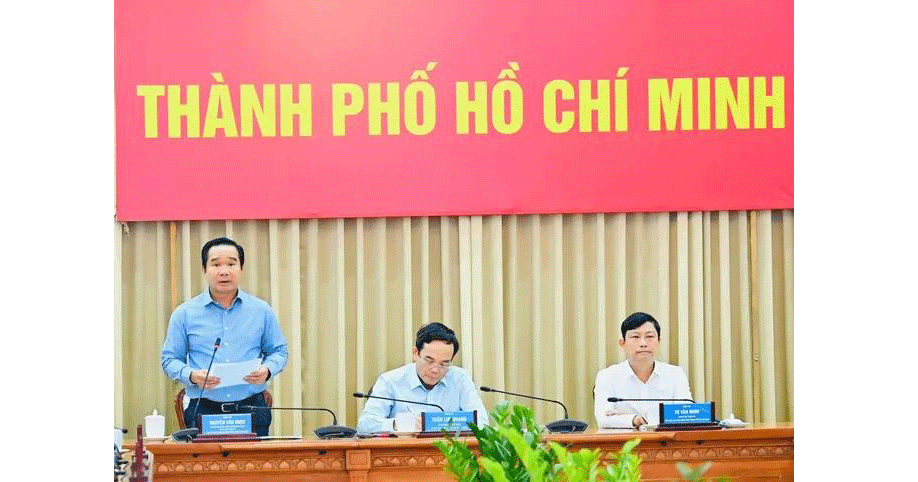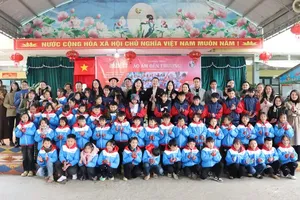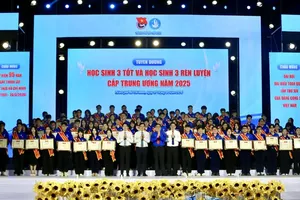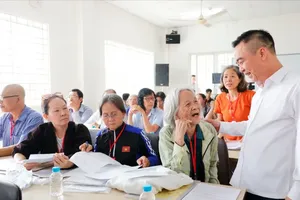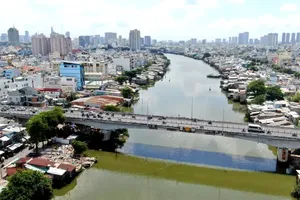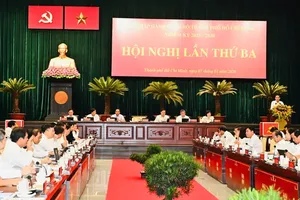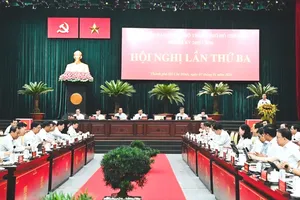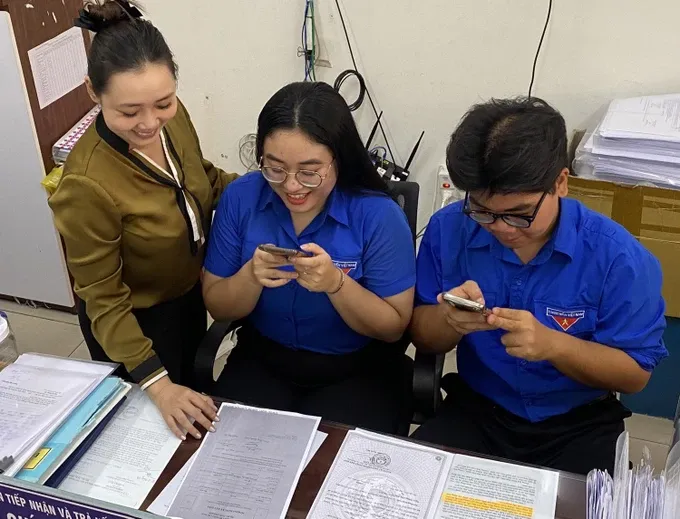
Since the time receiving the task of digitizing administrative documents of her ward at the beginning of this year, Nguyen Thi Bich Tram, a civil servant in charge of household registration in Ward 4 of District 5, has barely taken any lunch breaks or weekend days off to ensure the progress of her project. Helping her have been several members of the Ho Chi Minh Communist Youth Union of the ward. Thanks to those efforts, the task was completed five months ahead of time.
Chairwoman Diec Tuyet Mai of the People’s Committee of Ward 4 informed that until May 2024, her organization has digitized all such documents in the last three quarters of last year and quarter one of this year. The assigned staff are carrying out the project for the leftover of 2023 and those of 2022.
In parallel with digitizing administrative documents, the People's Committee of District 7 has directed its sub-units in each ward to digitize population information. In Tan Thuan Dong Ward, the basic data has been integrated on the website https://tanthuandongq7.com, including land plot data from the 2003 digital map onto the Google Maps platform.
At the same time, the WebGIS application is being used to build a new neighborhood information data layer; synchronize all land plot information data (sheet number, plot number, area, land type, user); attach all legal files related to building permits and renovation notices to the land location on the map as well as state-managed land, disputed land areas.
These data have proved their usefulness in management tasks for neighborhoods, construction works, socio-economic indexes.
Since the beginning of 2024, the People’s Committee of Thu Duc City has digitized 82 percent of administrative files. To accelerate this process, Thu Duc City has invested in equipment and is currently piloting it at the Administrative Procedure Reception and Result Return Office for land, environment, and household registration files as well as the People's Committees of 34 wards.
Standing Vice Chairman of the People’s Committee of District 7 Le Van Thanh informed that the district has digitized 62 percent of its administrative documents and processing results since the beginning of 2024, along with 60 percent of the files and processing results in 2023. In addition, District 7 has built databases for the fields of economy, urban management, natural resources and environment, health, culture, and society.
The HCMC Department of Information and Communications shared that since the formal introduction of the city’s information system to process administrative procedures, civil servants and public employees have been receiving digitized administrative documents from citizens to process. The results are then transferred to corresponding citizens' database and are reused for subsequent online public services.
Sharing information about the situation in the whole city, Director Vo Thi Trung Trinh of HCMC Digital Transformation Center (DXCenter), said that HCMC has assigned a target of digitizing at least 80 percent of administrative documents and processing results to all state departments and the People's Committees of districts and Thu Duc City.
To ensure the implementation of this target, the city has built and put into use a tool for digitizing files, integrating the Information System to Process Administrative Procedures. At the same time, electronic forms have been configured for 450 administrative procedures to reuse citizens' information after their identification authentication in VNeID, reducing data entry steps for citizens when using online public services.
The city is ready to connect and share specialized data through the city's Local Government Service Platform (LGSP) data (integration and data sharing platform), such as business databases; online criminal record issuance database; household registration and management database; common electronic catalog management database of state agencies serving the development of Vietnam's e-Government; resources, environment, and tax databases.
However, Director Trinh said that the city's digitization and data reuse rate is low compared to the set target. This is because the data of businesses and households have not been interconnected to serve data reuse in the procedures of granting business registration certificates and business licenses; neither are data to support the document review process nor household registration data to serve data reuse in the procedures of granting criminal records and related interconnected procedures.
Therefore, in addition to completing the features on the city’s Information System to Process Administrative Procedures, HCMC proposes that ministries and state agencies interconnect specialized databases to serve data reuse and improve the quality of processing administrative procedures in the city.


